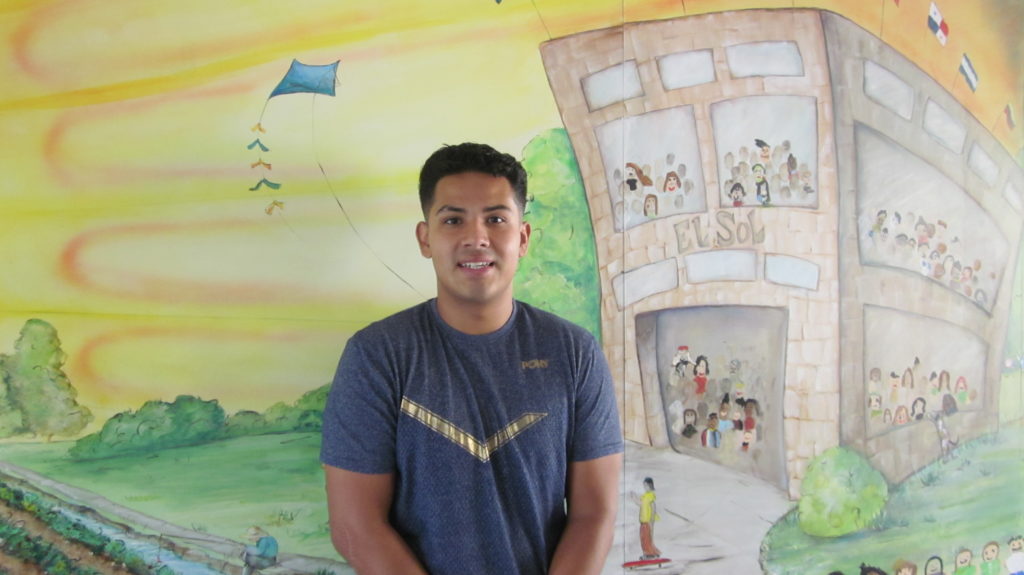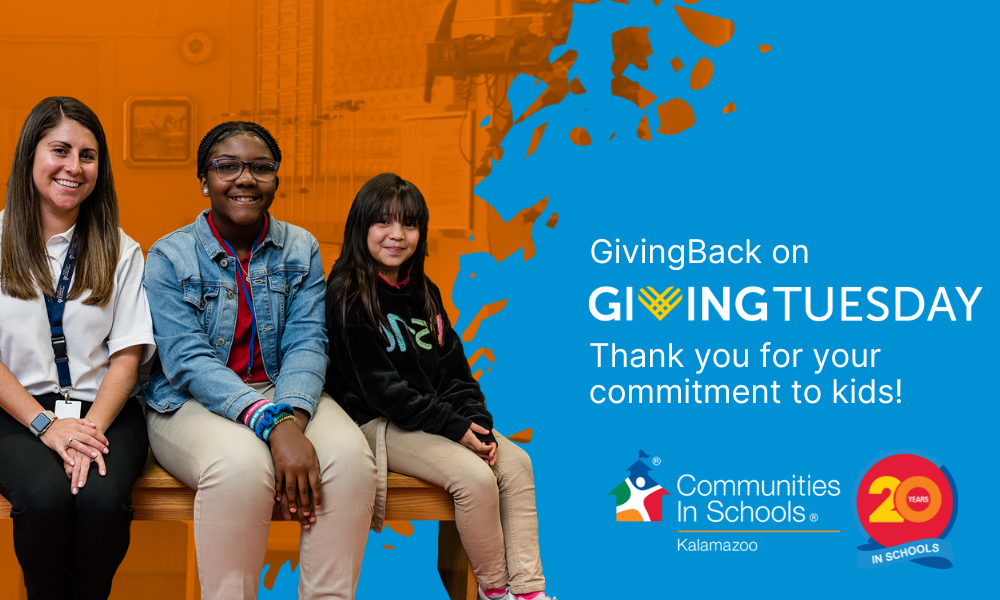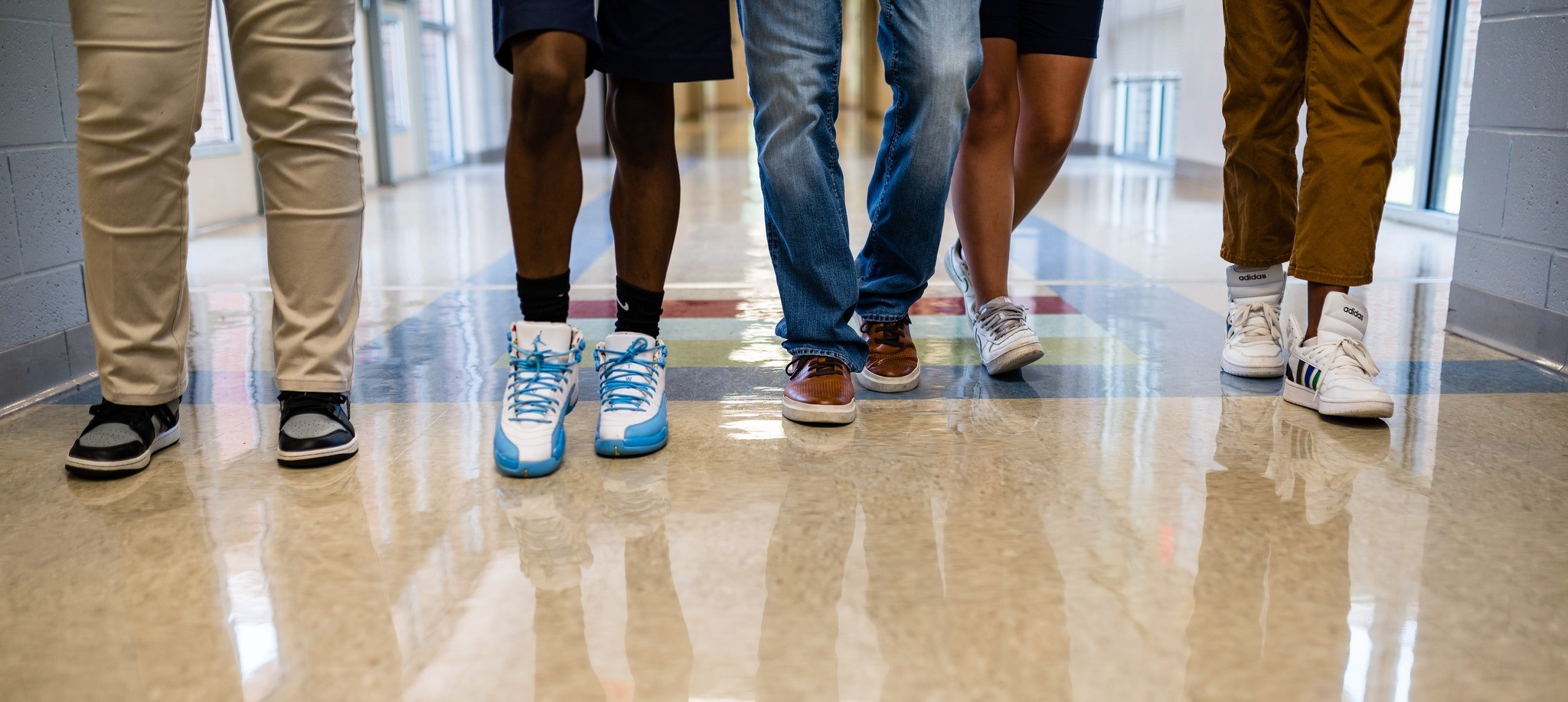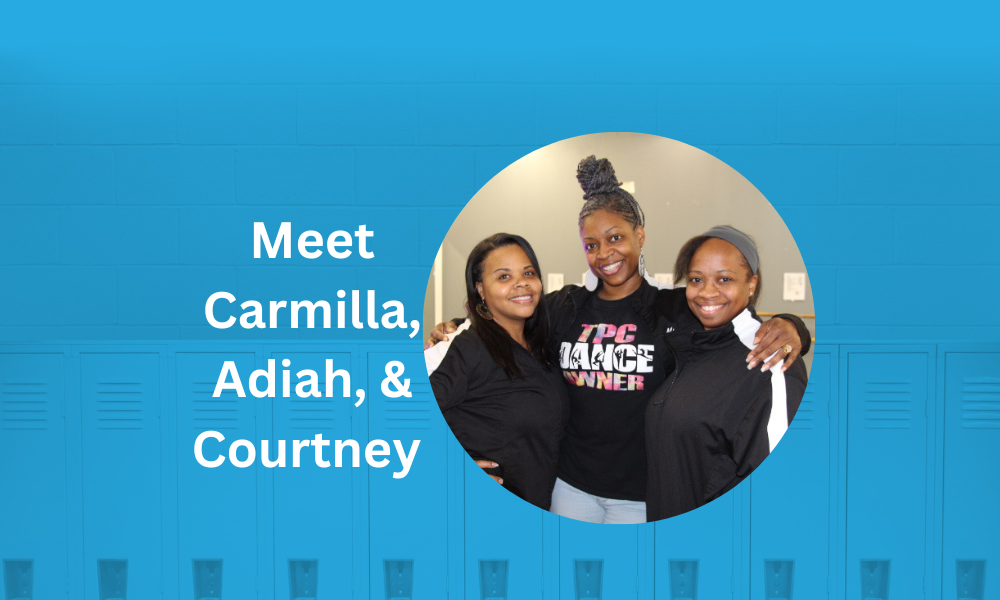Conversation with Levi Soto on Student Success, Social Work, Soccer, and more
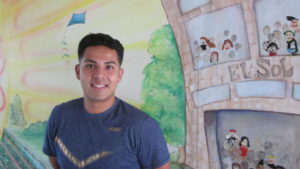 Welcome back to the POP QUIZ! This is a regular, yet totally unexpected, feature where we ask students, parents, staff, our friends, and partners to answer a few questions about what they are learning, reading, and thinking about. Today we feature Levi Soto, CIS Site Coordinator at El Sol Elementary. We met up with him at this thriving school located in the historic Vine neighborhood. El Sol functions similarly to a magnet school, accepting students from throughout the Kalamazoo Public Schools district. Approximately half of El Sol’s students come from homes where Spanish is the primary spoken language and half from English-speaking homes.
Welcome back to the POP QUIZ! This is a regular, yet totally unexpected, feature where we ask students, parents, staff, our friends, and partners to answer a few questions about what they are learning, reading, and thinking about. Today we feature Levi Soto, CIS Site Coordinator at El Sol Elementary. We met up with him at this thriving school located in the historic Vine neighborhood. El Sol functions similarly to a magnet school, accepting students from throughout the Kalamazoo Public Schools district. Approximately half of El Sol’s students come from homes where Spanish is the primary spoken language and half from English-speaking homes.
Originally from Hartford, Michigan, Soto came to Kalamazoo to attend Western Michigan University. While finishing his Bachelors in Social Work, Soto interned with Communities In Schools of Kalamazoo (CIS) and was placed at El Sol Elementary. The rest, as they say, is history. Now in his third year with CIS, Soto is also working towards his Masters in Social Work at Western Michigan University and interning with The Kalamazoo Promise. It’s probably an understatement to say Soto is busy. As part of his internship responsibilities, Soto says he’s excited to help pilot a new mentoring program. “It’s a mentoring project in which seniors at WMU—men of color who are also Promise graduates in the education field and looking to become teachers—will be mentored by WMU alumni men of color.”
Oh, and when El Sol is on summer break, Soto works with the Van Buren Intermediate School District’s summer migrant program.
Alright, Levi: pencil out, eyes on your own paper. Good luck.
Pop Quiz
What do you love about working at El Sol as a CIS Site Coordinator?
I love the whole partnership aspect of the work we do. Take Kalamazoo College, for example. They are a terrific partner and provide us some wonderful bilingual students—anywhere from 20 to 30 each year—who serve as role models for our students while tutoring, mentoring, and offering diverse, high quality supports like the Lunch Buddy Program. I love our Lunch Buddy Program!
[To learn more about the lunch buddy program and the Kalamazoo College Civic Engagement Scholars who support El Sol and other schools, check out this blog post.]
I feel that all together—El Sol, CIS, and our partners and volunteers—we are a community, a family here. We come together and help children and families who need support, whether its academic, basic needs, or providing enrichment activities through after school.
What is one of the most fulfilling aspects of being a site coordinator?
Just knowing that the students are being positively impacted by the partners and volunteers coming into the school. Without CIS, things would be a lot different. I can’t image what it would be like without CIS after school and all the resources the community provides through CIS during the school day. What everyone is doing is impactful and, in the long run, will help develop and strengthen the skills our kids need to be successful in school so they can go onto middle school, then high school, and on to college, higher learning of some kind.
What do you find most challenging about your work as a site coordinator?
Because we are a dual language school and everything is in both Spanish and English, I would say the challenge is to find more bilingual volunteers. And volunteers of color. It’s great when we can connect volunteers and partners who serve as role models for kids who also can speak Spanish. We just need more!
What is something interesting you’ve recently learned?
I’m learning about policy planning through the administrative social work class I’m taking at Western. As part of that, I’m learning how to effect policy change.
What are you currently reading, besides text books that is?
Little books. [Levi retrieves several Newmark learning books from a resource shelf filled with books and games.] 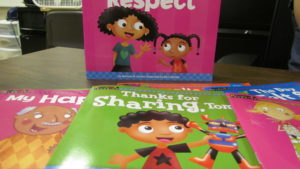
These books are part of a series that promotes social emotional learning. I’ll read these with our students. For instance, here’s I Show Respect. It’s an opportunity to ask students how kids in the book are showing respect. I’ll ask them questions like “How do you show respect? What does it feel like to be given respect? To show respect to others?”
I really enjoy reading these with the students.
The kids respond to these books?
Yes, they really do. They are short and simple. The books have a good message and the students enjoy discussing the what and why questions that are at the end of the book.
What does your summer work with the migrant program look like?
I work with Van Buren Intermediate School District as part of their secondary credit recovery program. So I make over 200 home visits each summer. Usually, these visits with students occur after the second shift, after their families finish working. I’m meeting with the students anywhere between 8 and 11 p.m, to tutor them…It’s good we have these kinds of programs in Michigan. As part of the program, we promote college. All these kids do is work and travel. And live in fear. They are isolated and don’t go out. With the migrant program, we are able to broaden their experience, promote a college-going environment, and even take them on a tour of WMU.
What is your favorite word right now?
Diversity. I like diversity. I like diversity in my life. I have it here at El Sol, in my internship with the Promise, and in my class at Western.
Speaking of diversity, I’m noticing a rise in the Latino/Hispanic population at WMU, particularly in my program. In the past, social work has typically been composed of white female and a few males. Lately, though, we have more men, men of color and women of color, too.
Why do you think that is?
I think, at least with the Latino/Hispanic population, students are often first-generation college students. They don’t necessarily know the ins and outs of college and careers…I think that the students are finally catching up with exploring different career options…I’m making some assumptions here, based on my experience. My family were migrant workers, you know.
Can you tell us what that experience was like?
As a migrant family, we travelled from Florida, to Georgia, to Ohio, to Michigan, depending on the crop season. We were constantly moving because of the crop seasons, so it was always different friends and different schools with different state requirements.
Did you work as a child?
Yes. After school I’d pick apples and then summer was blueberries…and also lots of mosquitoes. It was hard work and I didn’t like it much. My parents settled down after a while, in Hartford. When I was twelve, they stopped working in the fields and my dad started working for a construction company. He and his brother saved up $20,000 and started their own gutter business.
L & A Gutters—it’s family owned and operated—is now the largest gutter company in southwest Michigan! I used to work there, and even got to meet Muhammad Ali when we did the gutters on his house…I guess you could say my family is the American dream come true.
What is something you love about Kalamazoo?
Kalamazoo has a lot of community involvement, as well as nonprofits and other supports we can turn to. Of course, just like anything, there is always room for improvement. There is diversity here as well. [Superintendent] Dr. Rice has said it, and he’s right, that diversity is our strength.
Behind every successful person is a caring adult. Who has been your caring adult?
My high school counselor, Rick Ward. We didn’t have CIS at my school but we had Mr. Ward. He promoted a college-going environment and provided that CIS basic: a relationship with a one-on-one caring adult. He helped me with life skills. He was a role model for me.
Our school was predominately Caucasian and it was all Caucasian teachers with the exception of the Spanish teacher. He acknowledged that the Latino/Hispanic kids—we may have made up about 15% of the population back then—needed extra support and he went out of his way to build that support within our community.
How did he do that?
Growing up Mexican means being involved in soccer, kicking the ball around…it’s more than a sport, it’s one of the things that brings us together. Mr. Ward recognized this—that soccer was an important part of our culture. He started attending our soccer games and then in school, he’d take hold of the mic and for morning announcements would tell the whole school who scored a goal and we’d hear our names. It meant a lot.
He became a part of our Latino/Hispanic community. And he still goes to our soccer games…I’m the [Hartford Public Schools] assistant soccer coach.
You really do a variety of things, don’t you?
[Levi laughs. In addition to his passion for helping students, it’s clear that soccer remains an important part of his life.] …and we have been a team for the past ten years, recognized these past eight years as a top ten within the state!
Thank you, Levi, for hanging out with us at Ask Me About My 12,000 Kids.
Do you or someone you know speak Spanish? Consider becoming a volunteer with CIS today. Our students at El Sol and at other CIS sites throughout Kalamazoo Public Schools can use your support. Start the process by going here today!
Tags: CIS, Communities In School of Kalamazoo, El Sol Elementary School, Hartford Public Schools, Kalamazoo College, Kalamazoo College Civic Engagement Scholars, Kalamazoo Public Schools, L & A Gutters, Levi Soto, Lunch Buddy Program, Newmark learning books, Rick Ward, Van Buren Intermediate School District, Van Buren Summer Migrant Program, Western Michigan University


